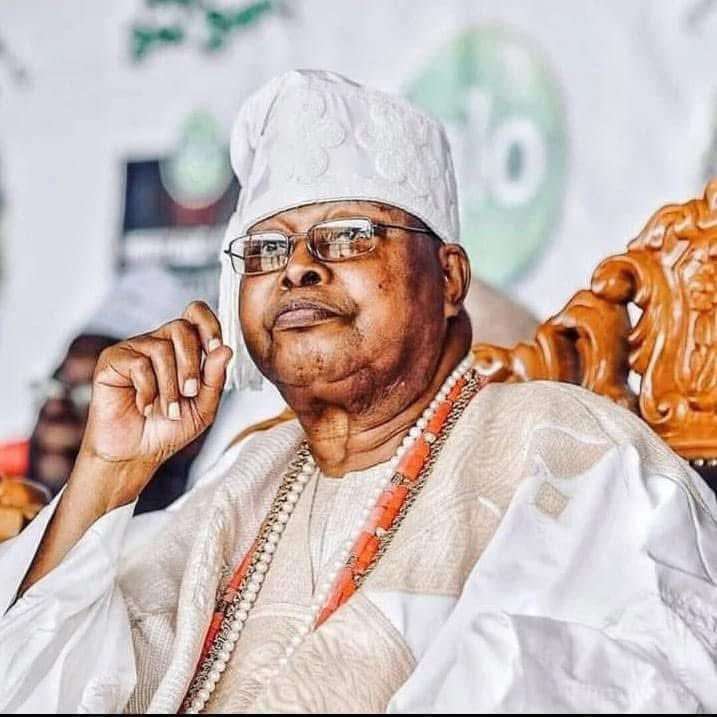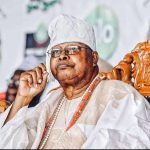As tributes pour in for Oba Sikiru Kayode Adetona, the revered Awujale of Ijebuland, Nigerians remember a royal figure whose six-decade reign redefined the role of traditional leadership in modern governance.
Ascending the throne in 1960, Oba Adetona emerged not just as a custodian of culture but as a reformist monarch who blended tradition with innovation, leaving behind a legacy marked by peace, progress, and people-centered development.
“He was more than a traditional ruler; he was a visionary who brought the palace closer to the people,” said Chief Adekunle Onasanya, a community elder in Ijebu-Ode.
Here are ten of his most defining achievements:
1. Microfinance and Poverty Alleviation
“The Oba gave us more than just access to loans, he gave us hope,” recalled Mrs. Sade Balogun, a beneficiary of the Ijebu Microfinance Scheme.
Oba Adetona championed economic inclusion by promoting microfinance initiatives that empowered market women, youth, and small-scale entrepreneurs.
His interventions directly targeted poverty reduction and economic resilience within Ijebuland.
2. City-wide Consultations for Inclusive Governance
He pioneered a model of city-wide consultations that emphasized inclusive leadership.
By institutionalizing dialogue across age grades, community leaders, and professional groups, Oba Adetona created a participatory system of governance rare among traditional institutions.
3. Educational Development
The monarch’s passion for education manifested in the construction and rehabilitation of schools and learning centers.
His reign saw significant investment in academic infrastructure, boosting access to quality education in Ijebuland.
“He believed that the future of Ijebuland rested in the classroom, not just the palace,” said Dr. Tayo Omotunde, an educationist and historian.
4. Infrastructure Development
Under his watch, Ijebuland witnessed the expansion and improvement of roads and public infrastructure. These developments improved inter-town connectivity and enhanced commercial activities across the region.
5. Modernization of the Ojude Oba Festival
Oba Adetona transformed the annual Ojude Oba festival into an internationally recognized cultural event. While preserving its traditional roots, he infused it with modern flair, attracting tourists, investors, and scholars from across the globe.
“Ojude Oba became a bridge between heritage and hospitality tourism,” said cultural promoter Bayo Hassan.
6. Promotion of Social Cohesion through “Regberegbe”
Through the revitalization of the Regberegbe (age-grade system), he galvanized civic participation among the youth. The system was instrumental in promoting unity, volunteering, and coordinated development efforts within the kingdom.
7. Endowment of a Professorial Chair in Governance
In a move that bridged royalty and academia, the monarch endowed the Oba Sikiru Adetona Professorial Chair in Governance at Olabisi Onabanjo University.
This groundbreaking initiative supports research in democratic governance and accountability.
“That endowment was a statement, that even kings must be accountable to the people,” noted Professor Funmilayo Adekoya, a public policy scholar.
8. National Recognition for Service to Humanity
Oba Adetona was conferred with the second-highest national honour in Nigeria, recognizing his lifelong service to peacebuilding, education, and community development.
He remained a symbol of moral authority and stability in Nigerian public life.
9. Longest-Reigning Monarch in Nigeria
Having ruled for over 64 years, Oba Adetona held the title of Nigeria’s longest-serving monarch. His steady leadership provided a strong foundation for political stability and cultural preservation in Ijebuland.
10. A Pillar of Unity and Stability
Above all, Oba Adetona will be remembered as a monarch who nurtured peace and unity. His reign was marked by harmony across religious, ethnic, and political divides, earning him respect across Nigeria and beyond.
“He was a father to all, a bridge in turbulent times, and a calming voice in moments of national uncertainty,” said Governor Dapo Abiodun of Ogun State.
Legacy Beyond the Crown
Oba Sikiru Adetona set a pace few traditional rulers may ever match. His legacy lies not only in the length of his reign but in the depth of his impact.
“Oba Adetona’s life was proof that tradition and progress can walk hand in hand,” remarked Prof. Wole Soyinka, in a tribute that encapsulates the monarch’s enduring relevance.
Talking Point
Oba Sikiru Adetona set a towering standard for traditional leadership in Nigeria, redefining what it means to be a monarch in a rapidly changing world. His reign was not merely ceremonial; it was a testament to visionary governance rooted in culture yet boldly forward-looking.
By blending tradition with modernity, through educational endowments, infrastructure projects, cultural diplomacy, and grassroots empowerment, he established a legacy that challenges future generations of traditional rulers to think beyond titles and embrace transformative leadership.
His life’s work remains a blueprint for monarchs who seek not only to preserve heritage but to actively shape the future of their people.





